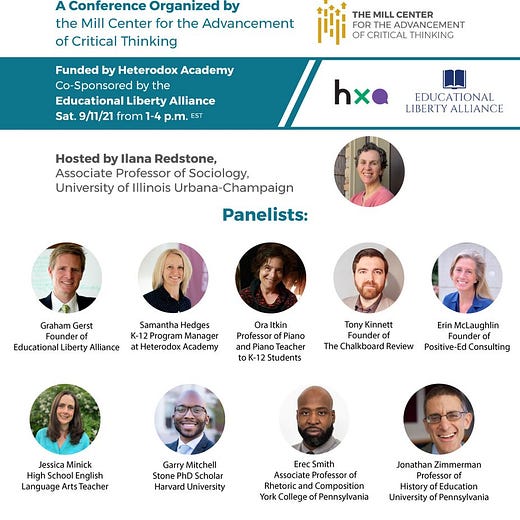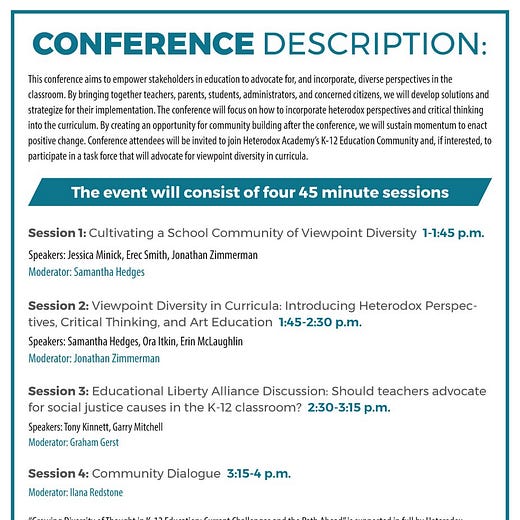E-Pluribus | August 20, 2021
Fighting (actually fighting) for liberal democracy, why can't (some) teachers teach, and Nicaragua goes after freedom of the press... again.
A round up of the latest and best writing and musings on the rise of illiberalism in the public discourse:
Anne Applebaum: Liberal Democracy Is Worth a Fight
While we here at Pluribus frame our fight against illiberalism as a largely metaphorical one, Anne Applebaum at The Atlantic writes that at times literally fighting for liberal democracy is both necessary and worthwhile, despite the cost. “Military solutions” do in fact exist, and while they should be a last resort for freedom loving people, those on the other side are not always so circumspect.
That’s also why the phenomenon of liberal internationalism—or “neocon internationalism” if you don’t like it—exists: Because sometimes only guns can prevent violent extremists from taking power. Yet many people in the liberal democratic world, perhaps most people, don’t want to believe this. They have long found these tools either too distasteful or too expensive. Like Ban Ki-moon and his many imitators, they sometimes even pretend that these tools are not necessary at all, because conflicts can be resolved by “talks” and “dialogue” and “cultural exchange.” They pretend that there are always peaceful solutions that have somehow not been considered, that there is always a nonviolent answer that has somehow been ignored, and that “solidarity” with the women of Afghanistan, without a physical presence to back it up, is a meaningful idea. “Hang in there sisters!” wrote the Greek economist Yanis Varoufakis, in a tweet that celebrated the fall of “liberal neocon imperialism” and unwittingly illustrated just how delusional the anti-war left has become. Hang in there, sisters? The fall of Kabul makes a mockery of that kind of language and shows up those who use it as fools.
[…]
The fall of Kabul should refocus Americans—in the administration, in Congress, in the leadership of both parties, but above all, ordinary Americans across the country—on the choices that are now coming thick and fast. Afghanistan provides a useful reminder that while we and our European allies might be tired of “forever wars,” the Taliban are not tired of wars at all. The Pakistanis who helped them are not tired of wars, either. Nor are the Russian, Chinese, and Iranian regimes that hope to benefit from the change of power in Afghanistan; nor are al-Qaeda and the other groups who may make Afghanistan their home again in future. More to the point, even if we are not interested in any of these nations and their brutal politics, they are interested in us. They see the wealthy societies of America and Europe as obstacles to be cleared out of their way. To them, liberal democracy is not an abstraction; it is a potent, dangerous ideology that threatens their power and needs to be defeated wherever it exists, and they will deploy corruption, propaganda, and even violence to do so. They will do it in Syria and Ukraine, and they will do it within the borders of the U.S., the U.K., and the EU.
Read it all here.
George Leef: Why Is College Teaching Often So Poor?
At National Review, George Leef highlights a new Jonathan Zimmerman book on the history of college that explores the quality of teaching that has been available at institutions of higher learning. There’s no magic formula for good teaching, but turning the current generation of students into thinking and engaged members of a liberal society depends at least in part on our ability to pass along what we’ve learned as a society thus far.
A new book by Jonathan Zimmerman entitled The Amateur Hour explores the history of college teaching and sheds some light on the generally poor level of instruction for students. In today’s Martin Center article, professor Matthew Stewart of Boston University reflects on it.
First, there evidently was no “golden age” long ago when college teaching was excellent. In the 19th century, it was pretty dismal. Stewart writes, “Unsurprisingly, students expressed anxiety and boredom, a combination of emotions bound to lead to resentment, if not cynicism, over the long haul. After students finished parroting the assigned readings, professors sometimes concluded the class by reading straight from the text. In the latter decades of the century, concomitant with the rise of the PhD, lectures came to replace recitations as the primary form of instruction. Nevertheless, the same basic student complaints prevailed. They felt bored and disconnected from the material.”
[…]
Shouldn’t colleges today try to ensure that new faculty members are properly trained in teaching methods? Many do, but it’s doubtful that they accomplish much. Stewart writes, “Belief in the importance of personality correlates strongly with the belief that great teachers are born, not made. Thus the split between those who think that education classes are mostly a waste of time, and those who think that college teachers, like any other teachers, ought to be given formal training and brought up to speed on pedagogical research.”
Read it all.
Washington Post: In Nicaragua, Night Is Falling for The Free pPress
The editorial board of the Washington Post sounds the alarm for freedom of the press in Nicaragua as President Daniel Ortega took action against La Prensa, a legendary newspaper in that country. Ortega’s anti democratic moves are hardly unexpected given his history, but this overt attack on La Prensa is a particularly bad sign for the people of Nicaragua and their ability to hold their government accountable.
…La Prensa — like Nicaragua itself — faces some of the greatest challenges in its history. On Aug. 13, President Daniel Ortega sent his police into the paper’s offices, purportedly to investigate money laundering and other trumped-up charges, and arrested general manager Juan Hollman Chamorro. The raid took place a day after La Prensa had suspended its print edition, noting in an editorial that the government was denying it access to newsprint, which must be imported.
Mr. Ortega had previously subjected the paper’s vice president, Cristiana Chamorro, to house arrest on similarly spurious charges, her real offense being to consider running against him in presidential elections set for Nov. 7. In a rambling speech before an audience of military officers last weekend, Mr. Ortega bizarrely maintained that his regime was merely prosecuting La Prensa’s “calumny against the state,” which, according to him, “is a crime in any part of the world,” the United States and Europe included.
Read the whole thing.
Around Twitter:
John McWhorter calls attention to an upcoming conference on Growing Diversity of Thought in K-12 Education sponsored in part by Heterodox Academy:
Canada and “genocide state” may not go together in most people’s minds, but they do for the Canadian Historical Society. Via Jonathan Kay:
Jordan Weissmann suggests that “housing justice” may be more about the cause itself than solving any crisis in housing:
And finally, Jeopardy! may be in jeopardy after the new host of the legendary game show, Mike Richards, is already an ex-host. Cancel culture, or accountability?













